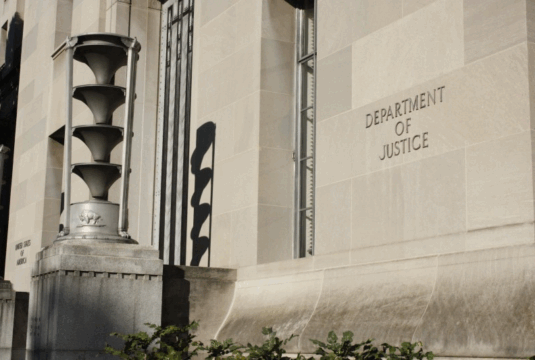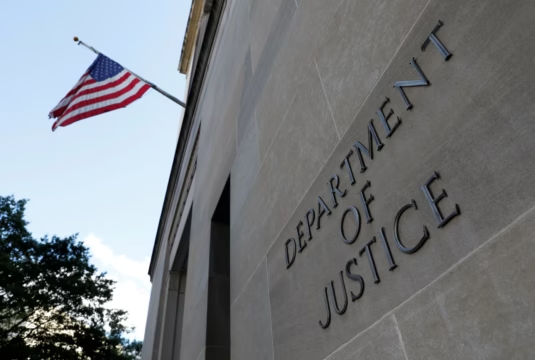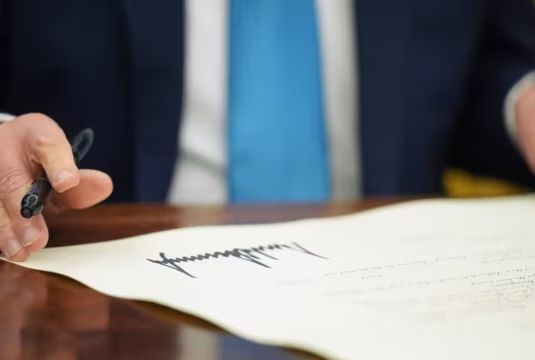New Report Exposes Corruption’s Hidden Role in Global Weapons Diversion
A Press Release from Transparency International U.S.
and Transparency International Defense & Security
April 16, 2025
Washington, D.C. – As armed conflicts surge and organized crime activity rises, a new report from Transparency International Defense & Security (TI-DS) and Transparency International U.S. (TI US) reveals how corruption is quietly but consistently enabling weapons to fall into the wrong hands.
Under the Radar: Corruption’s Role in Fueling Arms Diversion investigates over 400 cases of diversion across 70 countries and shows how corruption, including bribery, embezzlement, and abuse of authority, serves as a key enabler of illicit arms flows.
The report’s release comes at a time of intensifying global concern over weapons diversion and remains a key U.S. foreign policy concern. The report shows how corruption-fueled diversion has empowered organized crime, fueled armed conflict and violence, weakened military effectiveness, and undermined governance and security around the world.
“Despite greater recognition of corruption’s corrosive effect on arms control policies, states have often set aside efforts to assess corruption risks of arms diversion like a detective ignoring key clues in a recurring crime,” said Colby Goodman, Senior Researcher at TI US and TI-DS and one of the report’s authors. “The U.S. government’s push in recent years to add corruption risk assessments must continue to effectively tackle this global scourge.”
Given the U.S. government’s sharp focus on combating fentanyl trafficking and dismantling international cartels, the report provides key insights to help ensure U.S. reform efforts do not inadvertently support these criminal organizations. By identifying vulnerabilities in proposed arms transfers, the U.S. government can support its new reform efforts to “improve accountability and transparency throughout the foreign defense sales system to ensure predictable and reliable delivery in support of United States foreign policy objectives” and prevent U.S. weapons from reaching cartels.
“This report exposes critical gaps in our oversight of U.S. arms exports. It’s a sobering look at the security threats created by opacity and lax accountability in arms transfers, stockpile security, and arms disposal processes,” said Gary Kalman, Executive Director of TI US. “It provides new, practical guidance to help identify and mitigate such diversion quickly. Importantly, it also urges the U.S. government to provide critical U.S. foreign aid needed to strengthen arms stockpile management and destroy surplus weapons at risk of diversion.”
Some of the reports key findings include:
· The theft or embezzlement of state-owned weapons for private gain is the most common type of corruption-fueled diversion, accounting for over 350 cases. Bribery and abuse of authority remain a serious concern for diversion.
· Corruption facilitates diversion at each stage of a weapon’s lifecycle, including production, international transfers, active use and storage, and disposal. The active use and storage stage had the most corruption-fueled diversion cases followed by the disposal, international transfer, and production stages.
· Many of the corruption-fueled diversion cases resulted in devastating consequences for civilians. In more than 200 cases, military or security personnel reportedly colluded with illicit actors, such as organized crime, insurgents, or terrorists, in connection with arms diversion, which resulted in hundreds of deaths and injuries.
To address this urgent issue, the report offers key analysis and recommendations for the U.S. government to improve security when exporting arms:
· Strengthen national arms export policies: The U.S. Departments of State, Defense, and Commerce should work to explicitly identify corruption as a key risk for arms diversion in any new Conventional Arms Transfer policy and develop implementation guidelines that incorporate targeted risk assessment questions that measure key, often overlooked defense and security institutional controls.
· Improve international collaboration: The U.S. Department of State can strengthen its efforts to stem the diversion of weapons to organized crime by sharing information on corruption risks with other countries within the United Nations and other multilateral fora.
· Support research and foreign aid: The U.S. Departments of State and Defense and the U.S. Congress must continue to support foreign country efforts to curb corruption-fueled arms diversion by fully funding effective programs to strengthen the integrity of arms stockpile management and arms disposal programs as well as other key integrity issues within foreign defense and security institutions.
***
Transparency International U.S. and Transparency International Defense & Security (TI-DS) are part of the world’s largest coalition against corruption. In collaboration with national chapters in more than 100 countries, we are leading the fight to turn our vision of a world free from corruption into reality.
TI-DS is a global center of excellence, evidence and advocacy dedicated to building integrity in the defense and security sector for the benefit of citizens, states, and the world. It is hosted by Transparency International UK and works with Chapters across the Movement. Since its establishment, TI-DS has worked to bring anti-corruption firmly into the global defense and security agenda.
Related Resources
• Read the report “Under the Radar: Corruption’s Role in Fueling Arms Diversion”
Media Contact
Colby Goodman, Senior Researcher
Transparency International U.S. and Transparency International Defence & Security
Telephone: +1 202-341-5221
Email: cgoodman@us.transparency.org
LinkedIn: linkedin.com/in/colby-goodman-3717733









